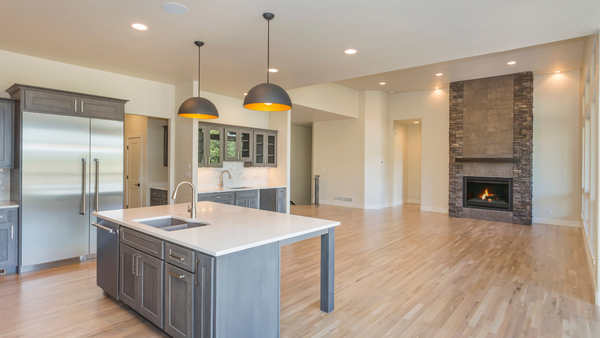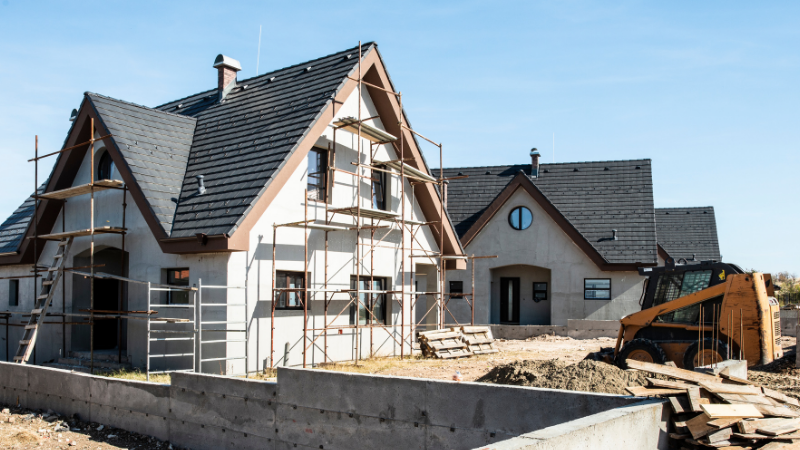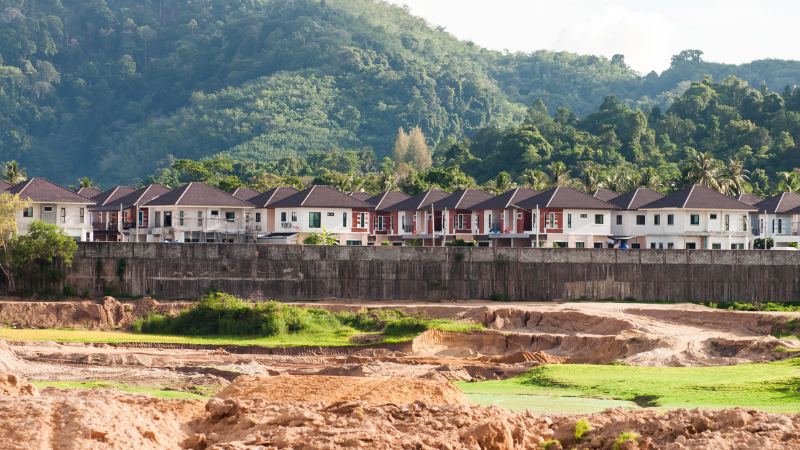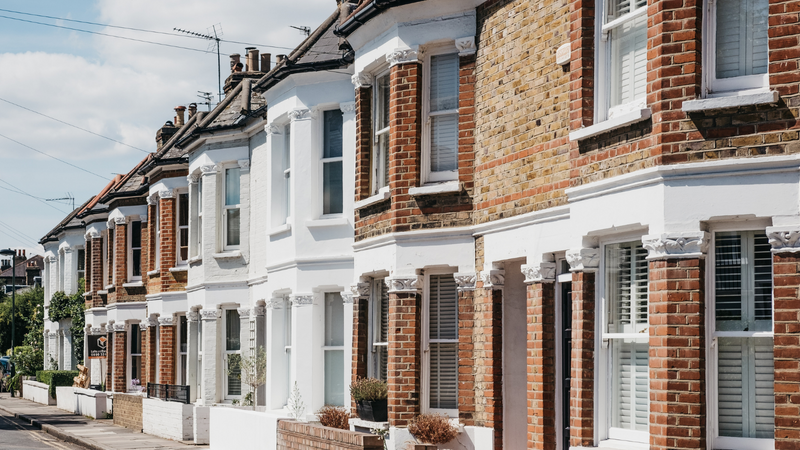Understanding Property Development
Property development involves the process of transforming raw land or existing buildings into valuable assets. Developers identify opportunities in the market and create spaces that cater to the needs and desires of individuals and communities. Whether it’s residential, commercial, or mixed-use projects, property development plays a crucial role in shaping our cities and towns.The Importance of Research and Analysis
Before embarking on a property development project, thorough research and analysis are vital. Developers need to assess market demand, demographics, and competition. Understanding the target audience and their preferences is crucial for creating successful property developments that attract buyers or tenants. Moreover, analyzing the financial feasibility of the project ensures a sound investment and maximizes returns.Acquiring Land: Finding the Perfect Location
Finding the right location is one of the key factors in property development. Developers search for land or existing buildings that align with their vision and project objectives. Factors such as accessibility, proximity to amenities, and future growth potential are taken into account. Negotiating with landowners or collaborating with real estate agents is common practice during this stage.Design and Planning: Creating a Vision
Once the land is acquired, the design and planning phase begins. Architects, engineers, and urban planners work together to create a vision that meets zoning regulations, building codes, and community expectations. This phase involves designing the layout, determining the unit mix, and incorporating aesthetic elements that enhance the overall appeal of the development.Securing Financing: Funding the Project
Securing adequate financing is essential to bring a property development project to fruition. Developers can obtain funding through various sources, including banks, private investors, and partnerships. A comprehensive business plan, accurate financial projections, project management tools and a solid track record are vital to gaining the confidence of potential investors or lenders.Construction: Bringing the Vision to Life
Once the necessary permits and financing are in place, construction begins. Skilled contractors and construction workers collaborate to execute the design and bring the project to life. This phase involves adhering to project timelines, managing costs, and ensuring quality workmanship. Effective project management plays a crucial role in ensuring a smooth construction process.Marketing and Sales: Reaching the Target Market
Marketing and sales are vital aspects of property development. Developers employ various strategies to promote their projects and attract potential buyers or tenants. These strategies include advertising, online marketing, showrooms, and engaging with real estate agents. Creating a compelling brand and showcasing the unique features and benefits of the development are key to successful development and marketing campaigns.Property Development Challenges
Property development is not without its challenges. Market fluctuations, changing regulations, various interest rates and unforeseen construction delays can impact the profitability and success of a project. Developers must be adaptable and proactive in addressing these challenges, conducting regular assessments and making necessary adjustments to ensure project viability.Environmental Considerations: Sustainability and Green Building
In recent years, there has been a growing emphasis on sustainability and green building practices in property development. Developers are incorporating environmentally friendly features such as energy-efficient systems, renewable energy sources, and sustainable materials. These initiatives not only reduce the environmental impact but also enhance the market value and appeal of the development.The Economic Impact of Property Development
Property development has a significant economic impact on local communities. It generates employment opportunities, boosts local businesses, and increases tax revenue. Well-planned developments can revitalize neighborhoods, attract investments, and contribute to overall economic growth. The multiplier effect of property development extends beyond the construction phase, creating long-term benefits for the community.Property Development and Urban Renewal
Property development often plays a crucial role in urban renewal initiatives. It revitalizes neglected areas, repurposes vacant buildings, and contributes to the overall improvement of the urban fabric. Well-designed and thoughtfully integrated developments can transform neighborhoods, enhancing livability, and attracting new residents and businesses.The Future of Property Development
The future of property development looks promising. With advancements in technology, sustainable practices, and changing lifestyles, developers have ample opportunities to create innovative and sustainable spaces. Concepts such as smart cities, mixed-use developments, and community-oriented designs are shaping the future landscape of property development.Buying residential property to renovate: for sale or rental

First time property developers are often drawn to run-down, outdated houses and flats crying out for a quick fix-up and cosmetic makeover.
If you’re new to property development, this type of residential property development guide is an excellent starting point: it draws on your home-buying and renovation experience without calling for specialist market knowledge in commercial property, storage units, offices or student accommodation.
- Plan to make a good profit margin: at least 20% on a fix and flip.
- Be prepared to walk away if the profit margin isn’t good enough.
- Profit is decided right at the beginning according to your purchase price: you can control how much you pay; the market decides your sale price.
Affordable finance for a fix and flip property investment
Our client had established a very profitable business doing quick renovations on modestly priced homes outside Edinburgh. She bought her latest property for £112K, planned to spend £13K on renovations, and was confident she could sell at £165K. The problem is that the loan sizes are sometimes too small for many lenders to be interested in. But we knew her business was growing and had worked with her on other projects.Letting out your investment property
Unless you plan to retain the property, you’ll probably be looking for a buy-to-let mortgage to fund the purchase unless it needs major structural renovations.
The area you’ve bought in and your projected rental income will be shaping your development decisions:
- numbers of bedrooms
- is this a property that will appeal to families, students, or young professionals
Single tenancy
For first-time investors, the most popular choice is one contract with a single tenant, a couple, or a family group.
- Monthly rental income pays for your buy to let mortgage and other management and maintenance costs, with some profit on top for you.
- One tenant relationship to manage, low management costs and a good chance they will stay long-term.
- The risk of void periods when the property is empty and receiving no income can wipe out your annual profitability.

House of Multiple Occupancy (HMO)
Letting out individual rooms in a house where the occupants share the living room, bathroom, and kitchen.
- Individual tenancy agreements.
- Opportunity for much greater monthly rental returns.
- But with higher management and maintenance costs.
- A Large HMO rented to five or more individual tenants offers even greater profitability (with greater management responsibilities).
- With an HMO or Large HMO, you continue to receive some rental income even if the house isn’t fully occupied.
- But arranging necessary repairs and upgrading can be more complicated.
Selling the renovated property.
Long-term mortgage lending isn’t suitable if you intend to sell the property after you’ve refurbished it. If you exit the mortgage early, early repayment charges (ERCs) could wipe out much of your profit.Buying a commercial property to convert to residential
Commercial property is any building being used to own business or used for business purposes: anything from office spaces to factories. Conversions of commercial property to residential use have been popular with central and local government, mainly when the existing property used has been vacant for a while: they’re currently (in 2019) less likely to face planning permission obstacles than other types of conversion.Building a second home or commercial premises on your property
 If you have the space available, you may be able to build an additional property on your land – either another residence or an office or commercial space.
Subdividing shouldn’t significantly reduce the value of your existing home if you have a larger-than-average garden (as a rule of thumb: roughly three times the size of your home).
If you have the space available, you may be able to build an additional property on your land – either another residence or an office or commercial space.
Subdividing shouldn’t significantly reduce the value of your existing home if you have a larger-than-average garden (as a rule of thumb: roughly three times the size of your home).Buying land to get planning permission and sell to a developer
This is a bold strategy that offers potentially high returns for considerable risk. The potentially significant capital gains are driven by developers continually seeking to build up their “land bank” of sites with planning permission they can build on in the future.

How to become a property developer
The UK’s love affair with bricks and mortar means investing in property has always been attractive to those looking to grow their wealth, or even make it their primary business. While government regulations have undoubtedly impacted the UK housing market – making property development somewhat less attractive than in previous decades, it’s still a solid long-term investment route that can provide significant returns if done properly. Even with the threat of a recession, plus very real crises around material supply chains and costs, plus a post-Brexit hiring struggle, there are signs that the UK property market will only continue to grow over the medium term. It’s not quite crisis-proof, but it remains a surer bet than most sectors.How to get into property development with no money
Turning real estate development into a career without a deposit, or a significant amount of money behind you, can be difficult but not impossible. As we’ve already mentioned, a lot of the talent behind successful property development is spotting potential and having an eye for location, popularity and being able to make the most of a limited budget. Ultimately, you could look to get 100% finance on a property as long as you have a solid plan and exit strategy for your property development finance too. Of course, 100% loans are harder to source and agree on, and these types of loans tend to have much stricter criteria so if this is something you’re looking at you’ll need to speak to one of our team beforehand. When it comes to the actual renovations or building works, many of our clients use loans for the physical sale of the property and then undertake the actual works themselves. Many new property developers are actually builders or tradesmen that are able to do much of the work themselves. In this situation you could, for example, look to source 100% loans for the short-term purchase of the property before carrying out the works yourself and then selling it on at a profit and repaying the loan in full.What does property development involve?
Depending on the type of property development you’re undertaking it’s not actually hugely complicated. Your first task is to find an opportunity that you’d like to invest in. That may be a house that has fallen into disrepair that you’re able to pick up for a really good price. Things to consider when looking at these opportunities is location, price, and similar properties in the area. If you’re looking to keep the property as a buy-to-let, how much do houses rent for in the area for a similar size? What are property prices like round the area? Is it close to transport links and schools? generally you’ll want to ask yourself the same questions you would if you were buying for yourself. Secondly, you’ll need to assess what work needs to be undertaken and then price that up. If the investment just needs to be cleared out, painted and re-plastered then that’s obviously a smaller undertaking than having to rewire the entire house. You need to consider if you have the expertise to do the work yourself and pass safety checks, and if you don’t you need to find somebody who can. Once you’ve completed your property development it’s then time to consider whether you’re looking to sell it or keep it on as a landlord. Both have their advantages, but if you’re looking to sell, you’ll need to get an estate agent and solicitors involved and this can have costs involved. If you’re looking to rent out the property, then you’ll need to find an agent that can help you find tenants.Why become a property developer?
If you’re somebody with the skills to pull off a property development business plan by yourself then it’s extremely lucrative. The housing market in the UK has been booming for years now and there isn’t a five year period in recent British history where house prices have dropped. The process itself can be complex but considering the time and effort required, there aren’t many other professions around that can bring in quite as much of a financial reward when it’s done well. If you’re also somebody who enjoys working with their hands, or on a project, then a property development company is an excellent career choice.Advantages of becoming a property developer
As with any type of career or investment, there are advantages and disadvantages, so we’ve included some here.Great money
As a career or business, it’s a lucrative and successful property developer that can earn you some serious money. If you’re able to develop a good number of properties across the year, then you can make a great profit. Similarly, if you decide to become a landlord then not only do you have valuable assets in your portfolio, but you can make excellent rental income.No qualifications required
Absolutely anybody can get into developing properties. There are no entry requirements and as long as you’ve got the gumption and work ethic then you can quickly learn how to make good money from developing property. If you’re not able to do some of the work, then you simply need to know how to source great contractors and negotiate.You can do a lot yourself
Aside from arranging development finance to fund the purchase of the investment, you can actually do an awful lot of the work yourself in this industry. Painting, fitting carpets, and other DIY works are quite often done and completed by the investment owners themselves. In London, for example, there are countless examples of this.Disadvantage of becoming a property developers
Of course, this industry isn’t for everybody and there are some downsides that you should be aware of.It can be risky
If you’re arranging development finance, then don’t forget you’re working to deadlines and budgets. These can be tight, and you need to be switched on to stick to them. If you’re inexperienced or things start to go wrong, then you run the risk of losing your investment.It can be stressful
As with many careers, developing properties can be highly stressful and especially when you’re working to deadlines and budgets. Work can quickly become a much bigger job than you originally anticipated, and you need to be dedicated to make good money in this industry.Expect the unexpected
When it comes to developing or investing in properties you need to be aware that some projects can quickly balloon into a much bigger job than you’d expected. Surveys can only give you so much information and things like roof repairs or structural damage can quickly become a costly burden on your time.Starting a Property Development Business: A Guide to Success
Starting a property development business requires careful planning, market research, and financial preparation. By following this guide, you can navigate the complexities of the industry, mitigate risks, and maximize the property development businesses’ potential for success. Remember to stay adaptable, continuously learn, and embrace innovation as you embark on this exciting entrepreneurial journey.
Property Development Project: From Concept to Completion
Property development projects require careful planning, meticulous execution, and effective management. From initial feasibility studies to final completion, each stage plays a crucial role in ensuring success. By understanding the complexities involved and engaging professionals with expertise in each aspect of the property industry, developers can navigate the challenges and create valuable assets.Conclusion
Property development is a multifaceted industry that involves transforming spaces, creating value, and shaping communities. From the initial research and analysis to the final marketing and sales stage develop property itself, developers face numerous challenges and opportunities. By embracing sustainability, incorporating innovative designs, and understanding market demands, property developers can leave a lasting impact on the built environment.


Recent Comments